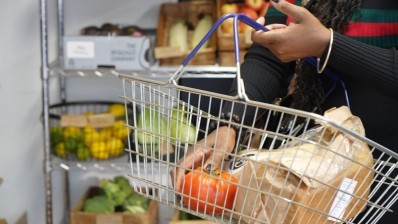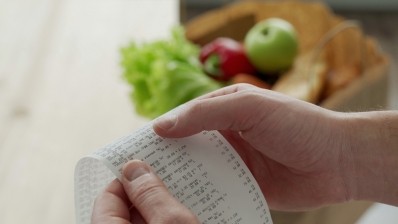Shoppers concerned about impact of growing ‘shrinkflation’ trend

Shoppers are concerned about ‘shrinkflation’, with two thirds noticing that products including chocolate and crisps are getting smaller yet cost the same or more, reveals Barclays' latest consumer spending report.
Amid ongoing concerns around rising food prices (88%), two thirds (65%) of shoppers have noticed that some products are now being sold in smaller package or portion sizes, yet cost the same or more than they used to – otherwise known as ‘shrinkflation’ – and the majority (83%) are concerned about the impact of this growing trend.
The products most frequently cited as being impacted by shrinkflation are chocolate (50 per cent), crisps (40 per cent), packs of biscuits (39 per cent) and snack bars (35 per cent). In response, a fifth of consumers (20 per cent) are switching away from products which have been downsized by manufacturers in favour of buying products in bulk which offer better value for money.
As food price inflation pushes grocery spending to its highest growth in two years, more than six in 10 (63 per cent) say they are looking for ways to reduce the cost of their weekly shop. Two fifths (41 per cent) of these budget-conscious Brits are using vouchers or loyalty points to get money off shopping, and over a quarter (27 per cent) are buying more frozen food to minimise waste.
Spending on non-essential items increased just 3.0 per cent this month – less than in April (4.6 per cent) – as half (50 per cent) of consumers say they are cutting down on discretionary spending to cope with rising household bills.
Restaurants saw another month of decline (-5.3 per cent). Insperiences – the trend of finding new ways to have fun at home – also proved popular, with digital content & subscriptions and takeaways both seeing their highest increases so far this year (10.2 per cent and 13.1 per cent respectively)
Esme Harwood, Director at Barclays, said: “Consumers are still paying close attention to their everyday spending, and we are seeing growing concerns around “shrinkflation” in the weekly shop.
“Many are having to forgo discretionary purchases to offset rising food prices, with clothing and restaurants most impacted.
Silvia Ardagna, Head of European Economics Research at Barclays, said: “Although the latest headline figures show that inflation has fallen due to lower energy prices, the prices of core services and goods remain stubbornly high and continue to constrain real household disposable income and spending.
“The UK economy has escaped a technical recession for now, but the forward-looking outlook remains one in which the economy is likely to stagnate as the impact of monetary tightening will more than offset the relief from lower energy prices.”








